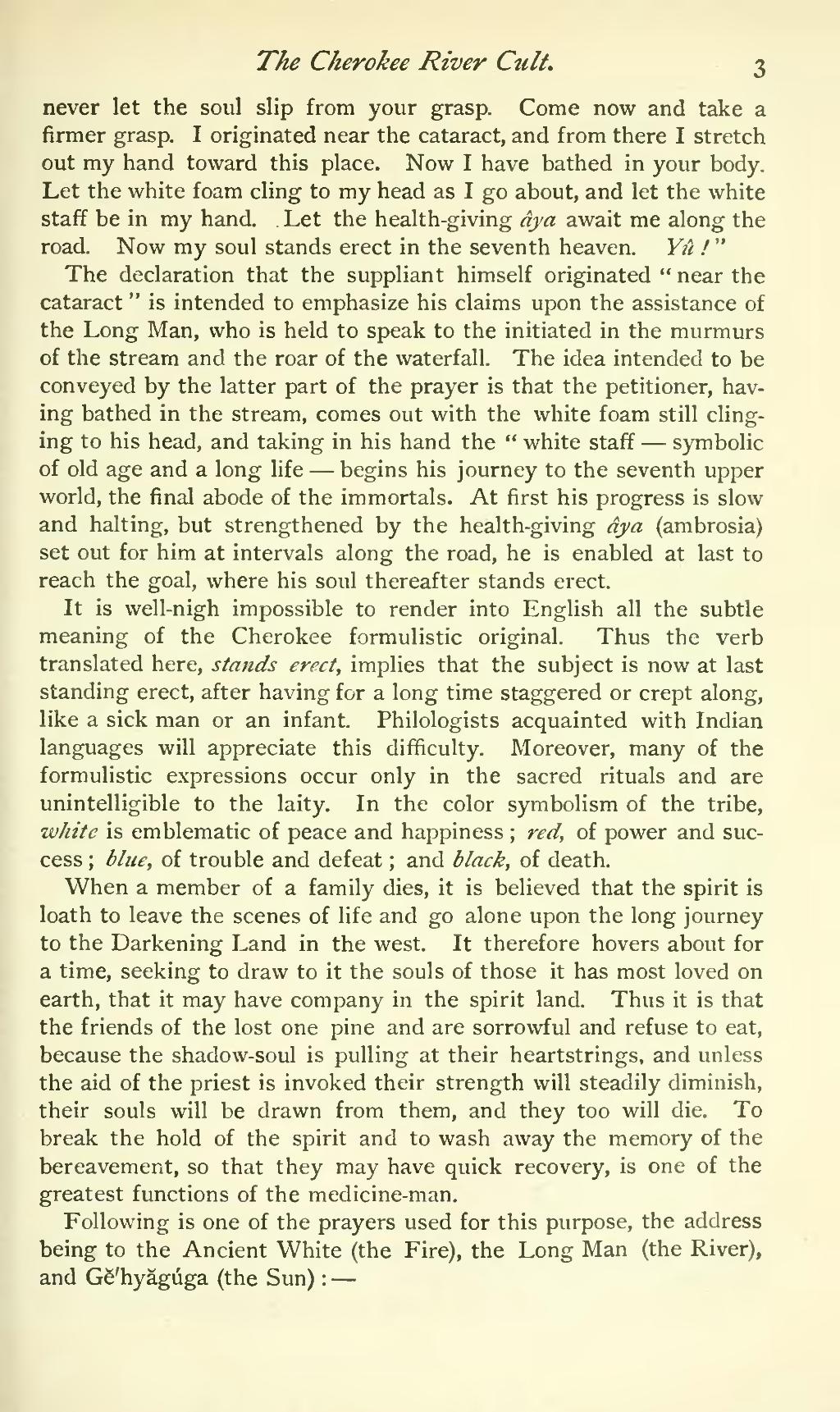The Cherokee River Cult. 3
never let the soul slip from your grasp. Come now and take a firmer grasp. I originated near the cataract, and from there I stretch out my hand toward this place. Now I have bathed in your body. Let the white foam cling to my head as I go about, and let the white staff be in my hand. Let the health-giving âya await me along the road. Now my soul stands erect in the seventh heaven. Yû!"
The declaration that the suppliant himself originated "near the cataract" is intended to emphasize his claims upon the assistance of the Long Man, who is held to speak to the initiated in the murmurs of the stream and the roar of the waterfall. The idea intended to be conveyed by the latter part of the prayer is that the petitioner, having bathed in the stream, comes out with the white foam still clinging to his head, and taking in his hand the "white staff — symbolic of old age and a long life — begins his journey to the seventh upper world, the final abode of the immortals. At first his progress is slow and halting, but strengthened by the health-giving âya (ambrosia) set out for him at intervals along the road, he is enabled at last to reach the goal, where his soul thereafter stands erect.
It is well-nigh impossible to render into English all the subtle meaning of the Cherokee formulistic original. Thus the verb translated here, stands erect, implies that the subject is now at last standing erect, after having for a long time staggered or crept along, like a sick man or an infant. Philologists acquainted with Indian languages will appreciate this difficulty. Moreover, many of the formulistic expressions occur only in the sacred rituals and are unintelligible to the laity. In the color symbolism of the tribe, white is emblematic of peace and happiness; red, of power and success; blue, of trouble and defeat; and black, of death.
When a member of a family dies, it is believed that the spirit is loath to leave the scenes of life and go alone upon the long journey to the Darkening Land in the west. It therefore hovers about for a time, seeking to draw to it the souls of those it has most loved on earth, that it may have company in the spirit land. Thus it is that the friends of the lost one pine and are sorrowful and refuse to eat, because the shadow-soul is pulling at their heartstrings, and unless the aid of the priest is invoked their strength will steadily diminish, their souls will be drawn from them, and they too will die. To break the hold of the spirit and to wash away the memory of the bereavement, so that they may have quick recovery, is one of the greatest functions of the medicine-man.
Following is one of the prayers used for this purpose, the address being to the Ancient White (the Fire), the Long Man (the River), and Gĕ'hyăgúga (the Sun): —
